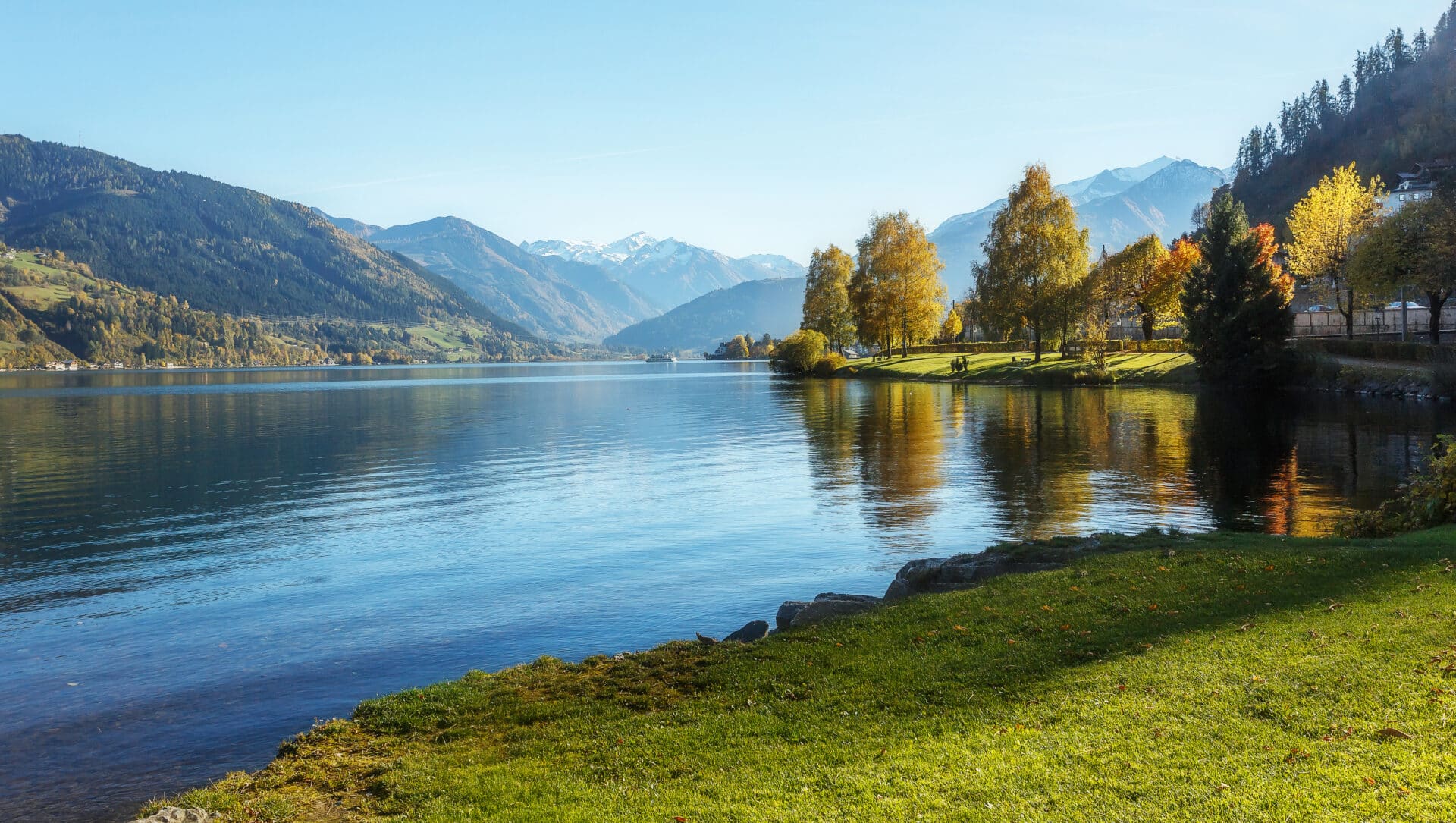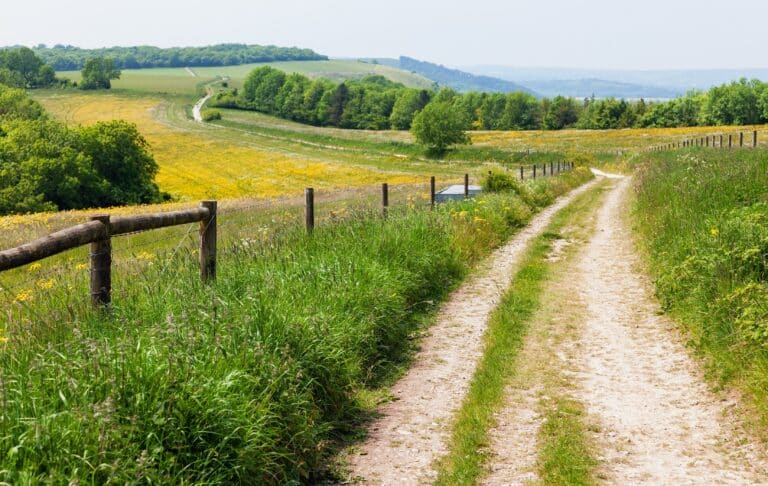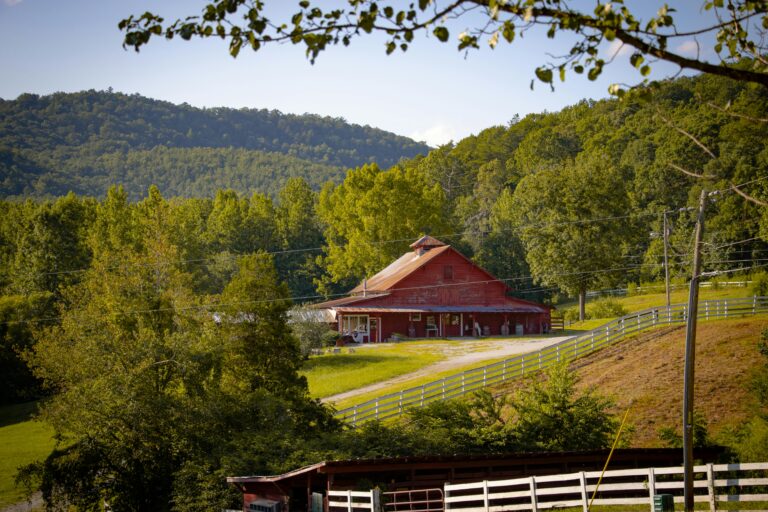Land isn’t just for living—it’s also chock-full of potential recreational use. From hunting on a private secluded parcel to weekend camping in the great outdoors, there are countless recreational uses for rural acreage.
But purchasing land is different from purchasing residential property, which is why our land experts are here with a beginner’s guide to buying recreational land. From evaluating acreage to securing a sale, we’ll walk through all the key steps, making sure you don’t overlook any part of this important purchase.
By the end of this article, you’ll know how to buy recreational property and feel confident about making an informed decision for your new outdoor getaway.
What to Know Before Buying Recreational Land
Before buying recreational property, it’s important to look into land features, environmental trends, local laws, and more. This ensures that you can use your land for what you want, when you want.
To start, make sure to evaluate a property’s:
- Location – Is the land rural or suburban? Driving distance from amenities, or completely remote? Location will play a critical role in how your land can be used.
- Accessibility – Even recreational land needs functional access roads. After all, you won’t be able to hunt if you can’t even access property through dense woods.
- Zoning laws – Zoning restrictions vary by state and area. Be sure to research these so you know about construction, hunting, fishing, and other permits.
Clearly plan your land’s intended use ahead of time so you know which factors to prioritize.
How to Assess Property Features That Impact Value
Land features don’t just impact how you can use recreational property—they also directly influence a parcel’s value. To that end, make sure to evaluate:
- Terrain – Elevation, soil type, bodies of water, local plants—physical features of the land will help determine how you can use it.
- Water access – Is there a river for fishing or a lake for kayaking? Water can significantly impact recreational usability and value.
- Timber – If you’re interested in wood harvesting, the potential for timber increases land value.
- Utility availability – Does the property have infrastructure in place for basic utilities (water, electricity), or will those have to be added? Utility setup can become a hefty expense down the line, especially in remote areas.
These factors can impact your budget, as well as potential resale value in the future.
Legal Considerations When Purchasing Recreational Property
When it comes to determining your legal rights, we recommend having the land professionally surveyed. During the process, pay close attention to:
- Easements – These are permissions for private or public use of your land (e.g., utility or drainage easements).
- Land use restrictions – Varying by state, these zoning and legal restrictions can limit your plans for recreational land.
- Property boundaries – Knowing exact property lines helps plan your land use as well as avoid potential neighborly disputes.
- Permits – Some states require permits for fishing, hunting, and camping, for example.
Having all your legal ducks in a row can help prevent headaches down the line.
Financing Options for Recreational Land Buyers
If you don’t have the cash for the acreage of your dreams, don’t worry—land purchases don’t have to be made out of pocket. Luckily, there are a number of financing options available for recreational land, such as:
- Personal loans – This traditional type of loan involves taking out a mortgage from the bank and repaying the loan over time.
- Land loans – Similar to a traditional mortgage, these acreage-specific loans can be given out by a bank, credit union, or other lending entity.
- Seller financing – In this case, the seller acts directly as the lender, working with you (the buyer) to negotiate fair terms for the down payment, interest, and repayment schedule.
Have a clear picture of your finances and budget in order to choose the right option for you.
Work With a Land Pro to Navigate the Buying Process
Enjoy guidance, expertise, and peace of mind with an experienced land professional. Land professionals know the ins and outs of buying recreational property and will help you every step of the way: finding acreage that meets your needs, negotiating with the seller, and ultimately closing the deal.
Plus, land pros will deal with all the paperwork and legal concerns, so you can spend more time actually enjoying your new land.
Find Recreational Properties for Sale on Land.com
Browse recreational property in all 50 states on Land.com, the nation’s leading online marketplace for buying and selling rural land. Our search filters make it easy to explore acreage based on size, location, price, land features, and more, so you can find recreational property that meets your needs with the click of a button.
Then, connect with a local Land Pro to streamline the buying process. All our land professionals have on-the-ground experience in rural land, making it convenient to find property both near and far from where you live.
Trust Land.com today to unlock your personal outdoor escape tomorrow.
Sources:
Garden City, GA. What are Easements? https://www.gardencity-ga.gov/city-government/public-works/what-are-easements.
Investopedia. Land Loans: Everything You Need To Know. https://www.investopedia.com/articles/credit-loans-mortgages/090716/land-loans-3-things-know-you-buy-land.asp.



